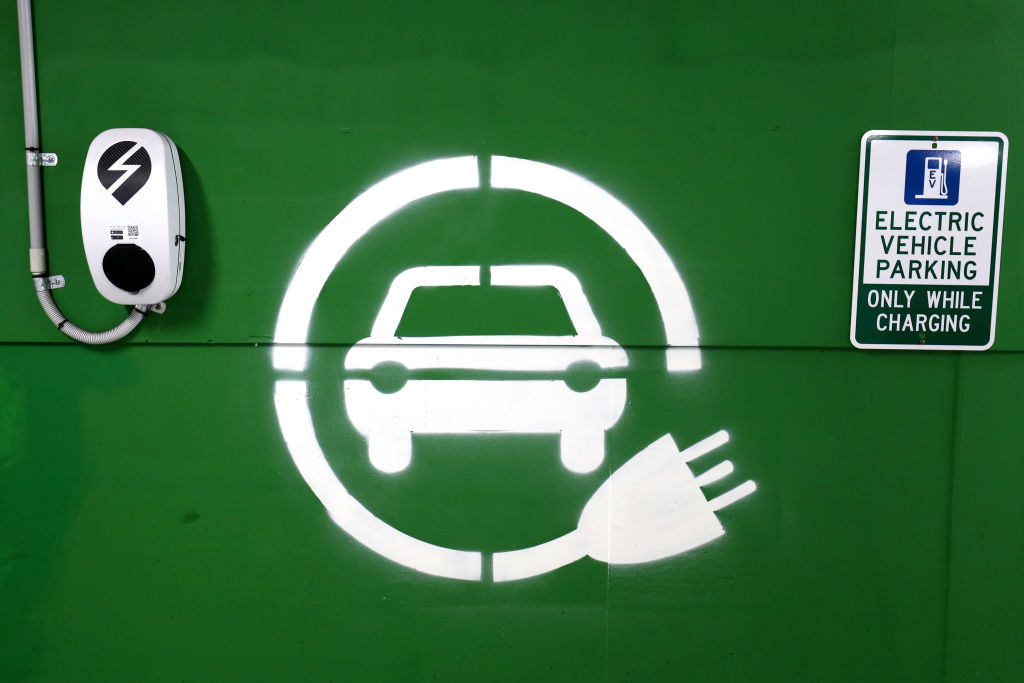Australia needs to be economically as well as strategically like-minded on critical minerals
Posted By James Bowen on May 4, 2023 @ 10:37

Chinese-owned Tianqi Lithium last month argued that it was a ‘like-minded’ [1] foreign investor in Australia. This invited close consideration of the somewhat contradictory aims Australia is currently pursuing in the critical minerals sector. It should make us better examine how we might resolve them.
The notion that a Chinese company fits the ‘like-minded’ bill is obviously at odds with how Canberra and other governments increasingly apply that term [2]. This typically argues for greater pursuit of trade and investment with politically aligned countries at the expense of mere economic expedience. It particularly seeks reduced Chinese engagement, to create ‘trusted’ global supply chains.
Advancing commercial ties with strategically likeminded countries—otherwise known as ‘friendshoring’—has become central to Australia’s critical minerals policy in the past few years. This is clear enough in our having joined initiatives such as the US-led Minerals Security Partnership [3] (MSP), which aims to build new trade and investment ties among an exclusive group of advanced democracies.
It is, on the other hand, possible to see how Tianqi’s interest at least satisfies a concurrent expectation government and industry have placed on Australia’s critical minerals activity: that we derive increased returns from our geological endowment, especially via greater processing and manufacturing. Tianqi has delivered on this value-adding imperative through its lithium hydroxide plant [4] in Western Australia, which started producing battery-grade product last year.
The context in which Tianqi invoked likemindedness is also vital. It came as the company was mulling a potentially enhanced takeover bid for Australian lithium interest Essential Metals. It also came shortly after [5] Australia’s Foreign Investment Review Board (FIRB) blocked a bid by China’s Yuxiao Fund to increase its stake in rare-earths company Northern Minerals on national security grounds.
There is a more intense strategic rationale for increased FIRB scrutiny of rare earths over other critical minerals: China has a broader and deeper value chain presence, and rare earths are particularly vital to defence applications. It is, however, also easy to see the tide shifting in favour of the FIRB limiting further Chinese interest in lithium, or other minerals vital to the economic sectors Australia is eager to grow.
Cutting off a source of capital would be less a problem if Australia were assured of reaping an alternative bonanza from friendshoring. There was good news on that front this week, with US-based Albermarle (Tianqi’s partner in the world’s largest lithium mine, at Greenbushes in Western Australia) announcing its own expanded lithium hydroxide investment.
Yet continued progress will be hard won. Politically aligned countries agree on the general principle of creating trusted supply chains. They are, however, actively positioning themselves to fight over the economic spoils of reshoring activity from China.
Australia’s most intense concern in this regard continues to stem from its most politically likeminded partner of all, the US. Washington’s Inflation Reduction Act (IRA), introduced in 2022, is already helping to unleash [6] American clean energy potential. It incentivises US manufacturers to invest in Australian critical minerals. Its massive subsidies for largely downstream activity may, however, also draw investment from our own processing and manufacturing ambitions. This could help confine us to a familiar role as the quarry to more diversified major economies.
One part of Australia’s response to this quandary must be to lobby Washington, and other friends, for concessions that encourage their companies to invest more in our onshore value-adding activities. Another may need to be maintaining a tight definition of what constitutes a national security threat to the critical minerals sector, at least while interest from other partners grows.
Yet Australia must also take on much of the responsibility for ensuring we attract beneficial international partnerships. We should significantly improve the incentives we offer domestic industry to work with counterparts in politically aligned partners, particularly where it supports value-adding.
Canberra has so far been content with raising the spectre of further FIRB crackdowns and urging Australian companies to seek partnerships in trusted countries, even where these companies see little commercial incentive [7] to do so. We have elsewhere liberalised access to our critical minerals—as with the recent India-Australia trade agreement [8]—without particularly thinking about how this will translate into investments downstream from mining.
Australia can’t easily replicate something like the US IRA in scale. We also can’t directly copy its friendshoring mechanism of subsidising ties with free trade agreement partners, because we have an FTA with China. We can and should, however, adopt the general approach of offering tangible rewards for industry members that form politically desirable cross-border ties. We also shouldn’t shy away from seeking a greater share of the economic pie while doing so.
Canberra should make more support to domestic industry contingent on meeting its cross-cutting goals for the critical minerals sector. Mechanisms such as the Critical Minerals Facility have already prioritised investments that advance value-adding. They could provide further funding incentives for Australian companies to do this at the same time as working with partners in MSP countries. This, indeed, would directly accord with the MSP mantra of ensuring activity ‘supports the ability of countries to realise the full economic development benefit of their geological endowments’.
A growing number of strategically aligned countries are looking to work with Australia on creating trusted critical minerals supply chains. Yet we need to ensure our participation in this process remains in the broader national interest. Applying greater vigilance to Chinese investment in the sector is prudent. Yet it is potentially counterproductive without commitments that can ensure alternative partnerships are economically as well as strategically likeminded.
Article printed from The Strategist: https://www.aspistrategist.org.au
URL to article: https://www.aspistrategist.org.au/australia-needs-to-be-economically-as-well-as-strategically-likeminded-on-critical-minerals/
URLs in this post:
[1] argued that it was a ‘like-minded’: https://www.afr.com/companies/mining/we-re-a-like-minded-foreign-investor-chinese-lithium-miner-says-20230414-p5d0lj
[2] increasingly apply that term: https://www.afr.com/companies/mining/china-may-be-cut-from-critical-minerals-deals-20230412-p5czrq
[3] Minerals Security Partnership: https://www.minister.industry.gov.au/ministers/king/media-releases/australia-joins-global-minerals-security-partnership
[4] lithium hydroxide plant: https://www.mediastatements.wa.gov.au/Pages/McGowan/2022/05/Tianqi-produces-Australia%E2%80%99s-first-battery-grade-lithium-hydroxide.aspx
[5] shortly after: https://www.abc.net.au/news/2023-03-01/government-blocks-yuxiao-fund-increase-stake-northern-minerals/102036224
[6] unleash: https://thehill.com/opinion/energy-environment/3910481-six-months-in-the-inflation-reduction-act-is-already-unleashing-clean-energys-potential/
[7] see little commercial incentive: https://www.afr.com/companies/energy/lithium-star-says-china-will-be-critical-to-minerals-future-20230209-p5cjbp
[8] India-Australia trade agreement: https://www.dfat.gov.au/trade/agreements/in-force/australia-india-ecta/outcomes/australia-india-ecta-benefits-australian-critical-minerals-and-resources-sectors
Click here to print.